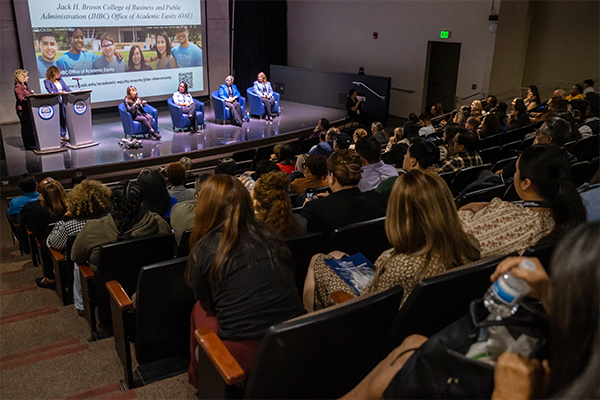Alan Llavore | Office of Marketing and Communications | (909) 537-5007 | allavore@csusb.edu
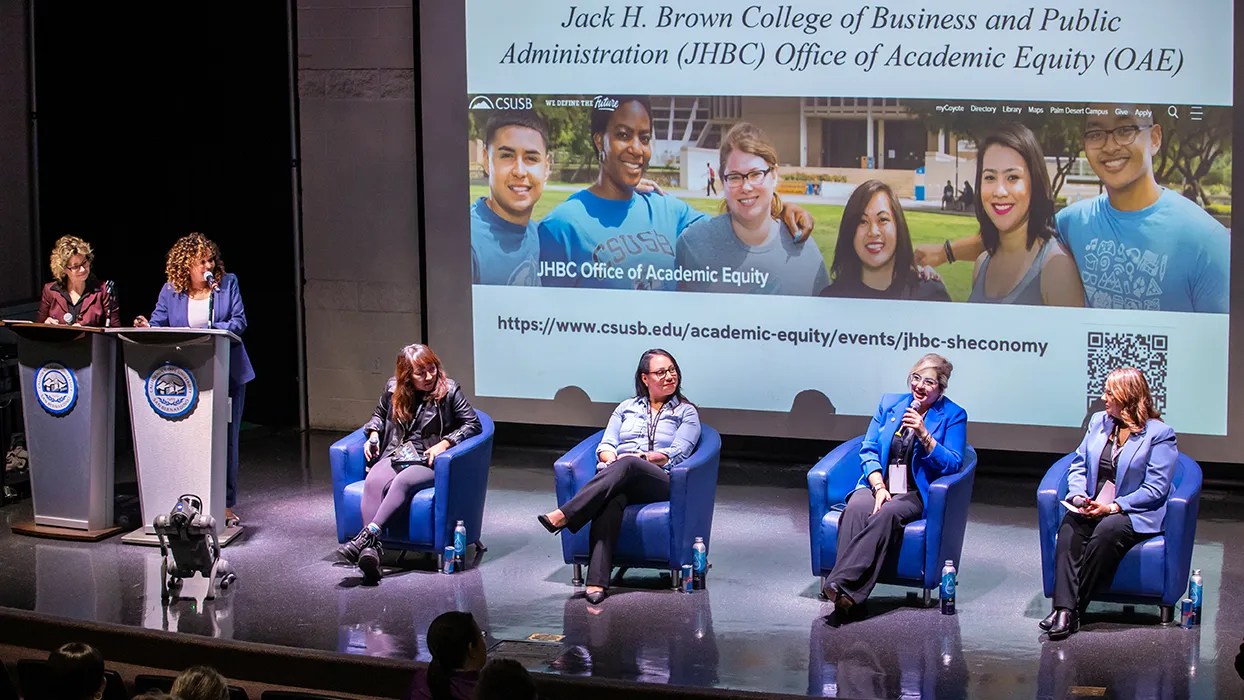
Cal State San Bernardino’s Jack H. Brown College of Business and Public Administration hosted its eighth annual ShEconomy bringing together innovators, researchers and community leaders to explore how artificial intelligence is reshaping women’s careers.
Held in the Santos Manuel Student Union South Theater and presented by the Office of Academic Equity on Oct. 23, this year’s theme — “The Future is Now: How AI is Transforming Women’s Careers” — drew more than 200 people for an evening of networking, empowerment and action-oriented insights.
Francisca Beer, associate dean and director of the Office of Academic Equity, opened the program with a presentation on the global disparities affecting women in the economy — from representation gaps to wage inequities — and how those imbalances intersect with rapidly advancing technology fields.
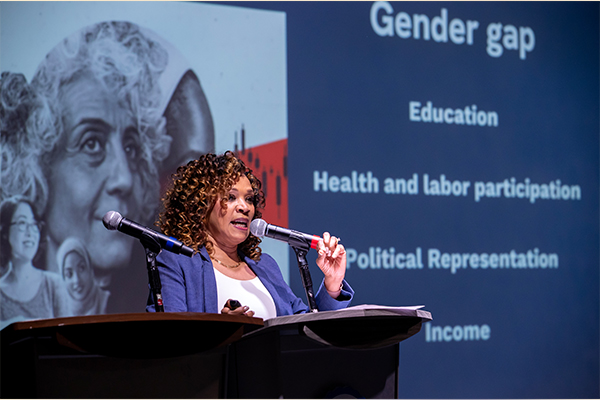
Following the opening presentation, Paniz Herrera, cybersecurity and AI executive at Deloitte and CSUSB alumna, and Yutong Liu, lecturer in the School of Cyber & Decision Sciences and director of the Motion Capture Studio, delivered expert insights into emerging AI trends. They emphasized how innovation, human-centered technology, and accessible pathways into technology fields will define the next decade of opportunity for women.
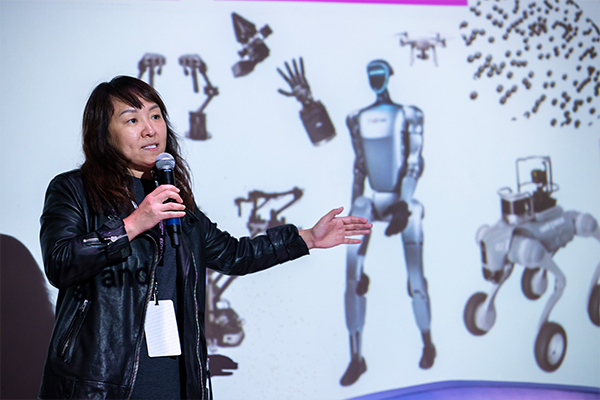
The evening then transitioned into a panel discussion moderated by Beer and Michelle Skiljan, senior director of philanthropy, foundation and corporate relations. Panelists included Liu and Herrera, as well as Dora Mejia, CSUSB emergency manager and two-time alumna with extensive experience in emergency preparedness and public health, and Ginger Ontiveros, president and CEO of Tomorrow’s Talent and CSUSB alumna known for her regional leadership in workforce development.
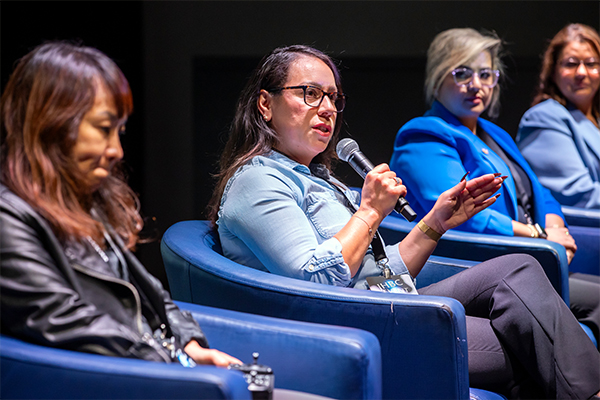
Across fields including emergency management, cybersecurity, robotics and experiential career preparation, speakers shared a unified message: women must be part of the design, funding and governance of AI — not just the consumers of its outcomes.
“It’s essential that we (women) sit at the tables where AI is built, funded, and governed. Only then can we ensure its safe and ethical use to advance humanity… not diminish what makes us human,” said Herrera.
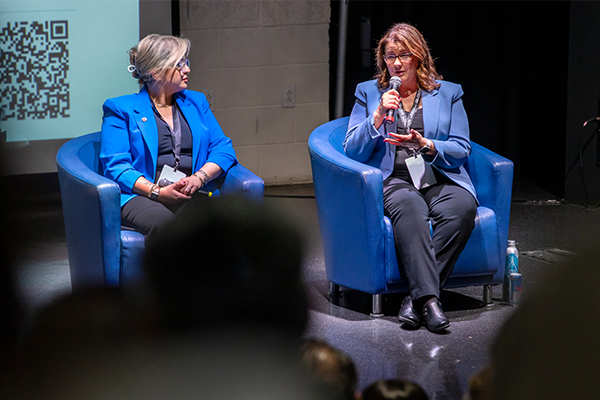
Attendee Kara Dutton praised the event, noting key insights, such as:
- The workforce is shifting from workers to thinkers.
- Technical skills must be paired with creativity, resilience and curiosity.
- "Lifelong learning isn't optional, it's essential."
- "Use AI as a thought partner, not a replacement for critical thinking."
- People who use AI will replace those who don’t.
Another message that struck a chord: confidence comes from keeping the promises we make to ourselves — and a reminder that personal growth must keep pace with technological change.
Throughout the conversation, panelists encouraged women to champion innovation and advocate for ethical standards that strengthen communities. As Herrera reflected: “Together we can make a difference.”
